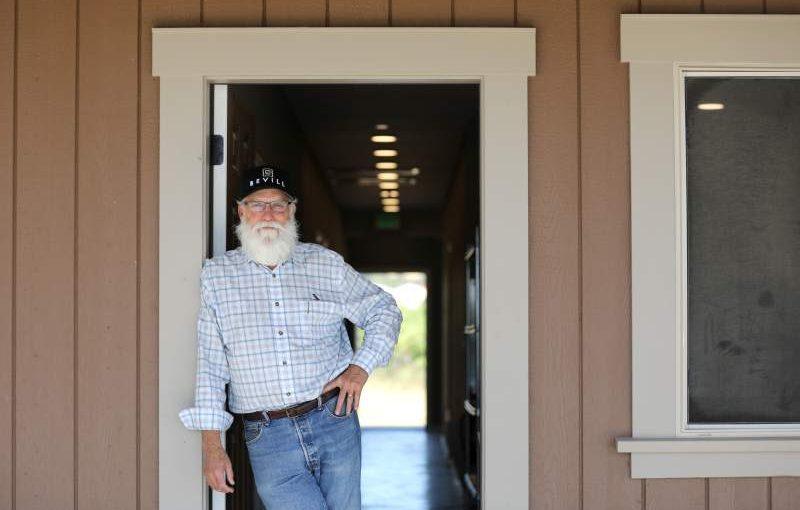
Vineyard manager Duff Bevill put the finishing touches last week on the bunkhouse he spent more than $1 million to build for guest workers eagerly awaiting the chance to pick grapes and earn U.S. dollars.
At a cost of $28,000 per bed, the dormitory-style housing has 10 rooms that each can accommodate three or four workers. Amenities include washers, dryers, wireless internet access, a spacious stainless steel kitchen and bathrooms that comply with the Americans with Disabilities Act.
“We’ve got guys in Mexico waiting for that phone call,” said Bevill, owner of Bevill Vineyard Management in Healdsburg.
In two weeks, Bevill’s security supervisor, Rey Sanchez, will fly to San Diego, get on a chartered bus and head to Tijuana to pick up two dozen workers. He’ll spend several days processing each worker’s H-2A visa before bringing the group to Sonoma County. The visas are part of a federal guest worker program for the agriculture industry that, among other things, requires employers to provide housing for the workers.
Like other area grape growers and vineyard managers, Bevill has turned to the federal program because of a farm labor shortage that has worsened since the devastating 2017 North Bay wildfires. Providing housing is a burdensome requirement these days, given the county’s shortage of affordable homes and the steep cost of residential construction.
Compounding the challenges to house workers, grape growers must comply with new state overtime rules for agricultural employees. They are causing growers and vineyard managers to hire, and house, even more people to do work that was previously done with smaller crews logging overtime.
Steve Dutton, who co-owns family vineyard operation Dutton Ranch with his brother, Joe, said they provide housing to almost all of their workers, some of it subsidized. In some ways, that insulates his grape pickers from the pricey local housing market that was stoked by the infernos two years ago.
Dutton said he has 15 single-family homes mostly for his senior employees, such as foremen and tractor operators, and their families. The base rent for these homes is about $700 a month and goes up from there, depending on the size of a worker’s family.
“If the kids are out of college but still living with parents we up the rent,” he said. “Here on the ranch, we’ve supplied housing the whole time we’ve been in business.”
Adjusting to new rules
But now the Duttons and other growers will need more pickers. At the start of the year, the state began incrementally shifting from the traditional 10-hour workweek for farm workers to a regular 8-hour week. The transition will take place over the next four years.
Dutton said growers will be hiring more workers to complete the same amount of work that was previously done with overtime hours. With the farm worker shortage here, that means hiring more foreign laborers via H-2A visas — and construction of more expensive workforce housing.
Bevill said he started participating in the visa program three years ago, because of a labor shortage which became acute six years ago. He and other wine grape growers have sought to minimize the time and cost of building workforce housing by collaborating and sharing building designs that already have cleared the construction permitting process.
